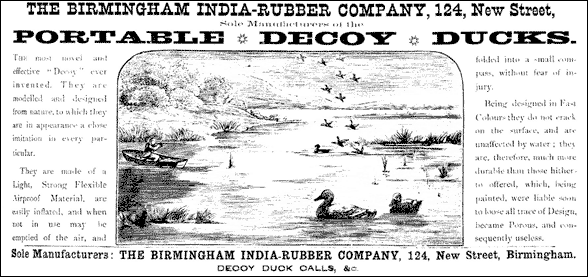If you have come to this page from a search engine please click here for a full site map and access to all site pages
The pianoforte featured several times in this year. The first observation refers to what could be the first ‘plastic’ piano: “Pianofortes are now being built from compressed paper pulp which takes a high polish and shows a cream-white colour”. Two others offer a little light relief: “A sewing machine which plays tunes has been invented. It is suggested that it would be better if the piano could be adapted to run up articles of clothing whilst being played by the lady of the house.” Perhaps more usefully, a German was reported to have invented an electromagnetic machine which, when placed against an adjoining wall, would distort the springs of a piano in an adjacent house and make it unplayable!
It was also noted that rubber flowerpots were introduced. Perhaps they were for window boxes? But this photo from my own collection shows truck tyres being recycled for that very purpose in the 1990’s. The rubber-strip-sprung cricket bat handle was patented by Mr WH Cook of London whilst a similar device was patented Mr FH Ayres. There were many patents relating to ladies’ attire in 1886 For instance, “A rubber overshoe for ladies has been introduced in the USA which extended above the knee”. Given the skirt length of those days this seems a little extreme but perhaps Emma Peel’s great grandmother was a leader of fashion. A ladies’ “bust improver” was patented by a Mr Harris. Without dwelling on details it consisted of two inflatable rubber balls and various fastening straps. In the same journal it was noted that “Lady teasers” were this year’s surprise item, one chemist selling 200 in one day. Made from a 6-9 inch length of rubber tubing you might wonder what they did. (Change the text colour in the following gap to find out: Children’s water pistols. Tie a knot in one end, fill with water from the mains and then stick a finger or bung in until one wanted to use it. In considering one day’s sales it should be appreciated that 1886 saw the introduction of the The Shop Hours Regulation Act which limited the working week for a young person to 74 hours. Perhaps following on from one or more of the above, “Mr Edison has discovered and invented many things and we understand that his latest discovery is that it is not good for man to live alone. An interesting and accomplished lady has consented to become Mrs Edison”. The wedding took place on February 24th and the lady was Miss Mina Miller. Also: “…that many US brokers “not marrying men” had been “fascinated into the bonds of holy matrimony” by that new phenomenon – their female secretaries”. Returning to the theme of inflatable rubber goods, “Inflatable rubber ducks are the perfect decoy for shooting wild ducks on the Norfolk Broads or Lincolnshire Fens” claimed the Birmingham India-rubber Company. Presumably if one only shot at flying ducks, the decoys had a reasonable life! There are many more fascinating items in just this one year’s journals but, remembering that they also cover the electrical trades, I will finish with just two from this area which might provide room for thought! “During a violent snowstorm in New York many overhead telegraph and telephone wires were brought down. The argument between the “overheaders” and “undergrounders” was fierce. The author noted that a similar argument existed for London but “it would never do to let the companies tear up the streets at their pleasure.” “A burglar captured in Oxford refused to reply to any questions put to him. Under the influence of a galvanic battery he recovered the use of his vocal chords”.
|





